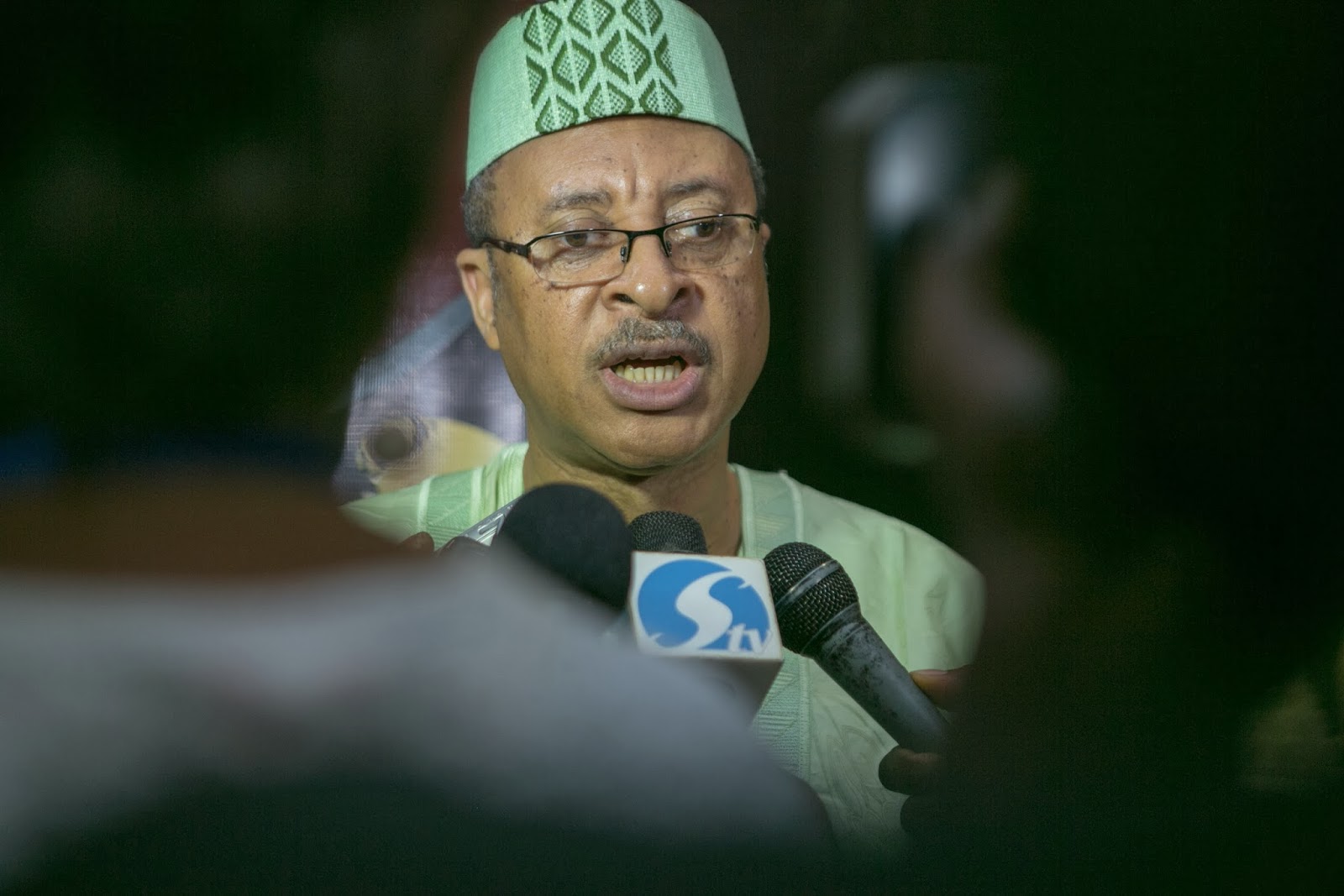ABUJA, Nigeria – A coalition of political reformers and civic activists, under the leadership of renowned economist Professor Pat Utomi, has launched a Shadow Government aimed at countering what it describes as Nigeria’s “deepening governance failure” under the All Progressives Congress (APC).
The move, which marks a strategic shift in the country’s political discourse, seeks to provide credible policy alternatives and rekindle national hope in democratic accountability.
A New Front Against Governance Paralysis
Unveiled at a landmark event convened by The Big Tent Coalition, the Shadow Government initiative is framed as a counterweight to what organisers describe as a systemic collapse of leadership at the federal level.
Speaking at the event on Wednesday, May 7, 2025, Prof. Utomi declared the new formation a “values-driven, citizen-centred intervention,” designed to restore trust in government through transparency, performance benchmarking, and ethical leadership.
“This is not just a political project; it is a movement grounded in integrity, public service, and strategic vision,” Utomi said in his keynote address titled A Shadow Alternative to Deepen Democracy.
The initiative comes at a time when public disillusionment with the APC government is at an all-time high. Citizens have expressed frustration with rampant inflation, insecurity, and a perceived abandonment of key campaign promises.
Policy, Not Propaganda
The Shadow Government, Utomi stated, is committed to delivering evidence-based policy solutions in areas such as healthcare, education, infrastructure, and national security.
“What we offer,” he noted, “is not rhetoric but substance — real solutions for the challenges our people face every day.”
The group has launched an official portal, thenewtribe.ng, which serves as a digital hub for citizen engagement, policy blueprints, and volunteer mobilisation.
The portal was unveiled on 1 May 2024 as a “platform for inclusive governance dialogue.”
In sharp contrast to what Utomi described as “the propaganda-fuelled governance style of the APC,” he warned that the ruling party had allowed misinformation to replace genuine policy debate.
He drew comparisons to “historical fascist regimes” where dissent was suppressed and public opinion manipulated.
Diaspora-Driven, Grassroots-Focused
Utomi highlighted the significance of support from the Nigerian diaspora and domestic civil society groups.
“We are leveraging Nigeria’s most powerful asset — its people — both at home and abroad,” he said.
Among those who have endorsed the movement is human rights activist Akor Christian Oche, convener of the Due Process Integrity Vanguard, who described the launch as “a defining moment for Nigeria’s democratic direction.”
Posting on his official X handle, @DueProcessWorld, Oche called the initiative “a breath of fresh air” in a system suffering from public apathy.
No retreat, No surrender; Shadow Government has come to stay – Due Process.
The Big Tent led Shadow Government is a mother of necessity whose time has come in the face of Tinubu led APC government that has not only failed Nigerians but subjected Nigerians to kidnappings, genocide pic.twitter.com/tdzQeHUITH— Due Process Integrity Vanguard 🐐 (@DueProcessWorld) May 7, 2025
Economic Reform and Ethical Leadership
The Shadow Government is also positioning itself as a watchdog on fiscal discipline.
Utomi criticised recent government spending on luxury assets, including new presidential jets and official vehicles, amid rising hunger and joblessness.
“This is a betrayal of the people’s trust,” he said.
Referencing Malaysia’s Mahathir Mohammed, Utomi advocated for a Nigeria-specific industrial policy to leverage the nation’s human capital and natural resources.
He condemned the exit of multinational firms such as Diageo and Procter & Gamble as a “symptom of policy instability and weak economic management.”
Utomi called for a new economic vision that prioritises job creation, regulatory clarity, and productive investments.
Reimagining National Security
In one of the most ambitious components of the initiative, the coalition proposed a three-tier security framework: local security outfits, state police forces, and a federal national guard. Utomi said such a structure would better reflect local realities and build national unity through shared responsibility.
“The failure of central policing has left too many communities vulnerable,” he noted, citing violent attacks in Benue and Plateau States.
Shadow Cabinet Announced
To give the initiative operational teeth, a Shadow Cabinet has been formed, including experienced professionals and rights advocates. Notable appointments include:
-
Dele Farotimi – Head of Good Governance Portfolio
-
Cheta Nwanze, Oghene Momoh, and Halima Ahmed – Policy Delivery Unit
-
Dr. Adefolusade Adebayo, Prof. Ukachukwu Awuzie, and Aisha Yusuf – Shadow Ministers
Utomi said the calibre of individuals involved reflected the seriousness of the project and its commitment to performance evaluation.
A New Chapter in Nigeria’s Democracy?
While critics question whether a shadow cabinet can gain traction in Nigeria’s entrenched political environment, supporters say it marks a long-overdue return to issue-based politics.
Observers believe the initiative could serve as a critical intellectual and moral counterweight to the transactional politics that has come to define the Nigerian state.
“Nigeria’s GDP per capita is now lower than it was at independence,” Utomi noted, referencing data from the African Development Bank.
“That should be a wake-up call to every Nigerian.”
In closing, Utomi urged Nigerians to reject divisive rhetoric and embrace the “difficult but necessary” work of national transformation.
“The real revolution is ethical,” he said. “And we must begin now.”
Whether the Shadow Government succeeds in reconfiguring the nation’s political trajectory remains to be seen. But for many Nigerians, it has already succeeded in one vital regard: it has made them believe again.







